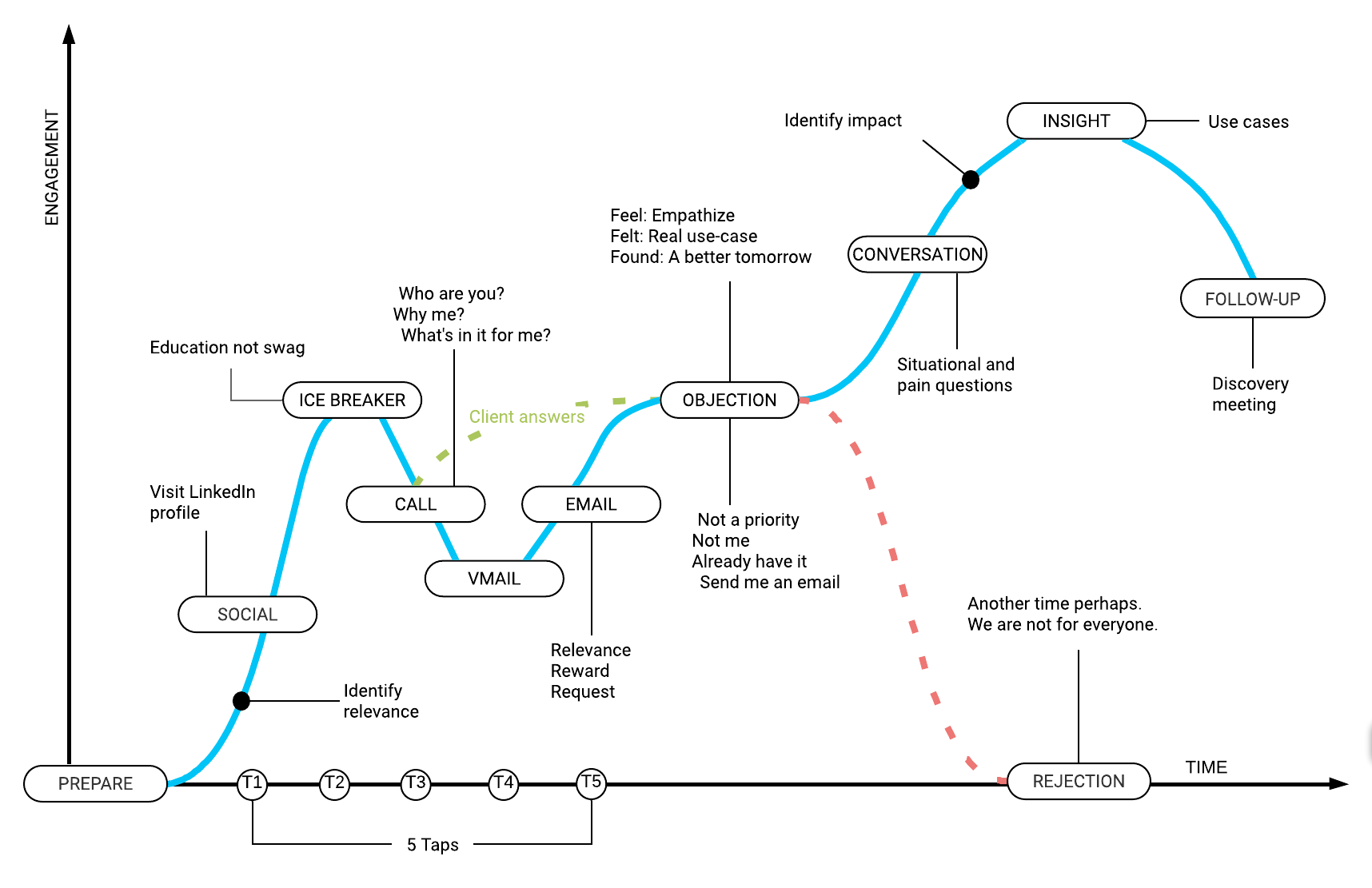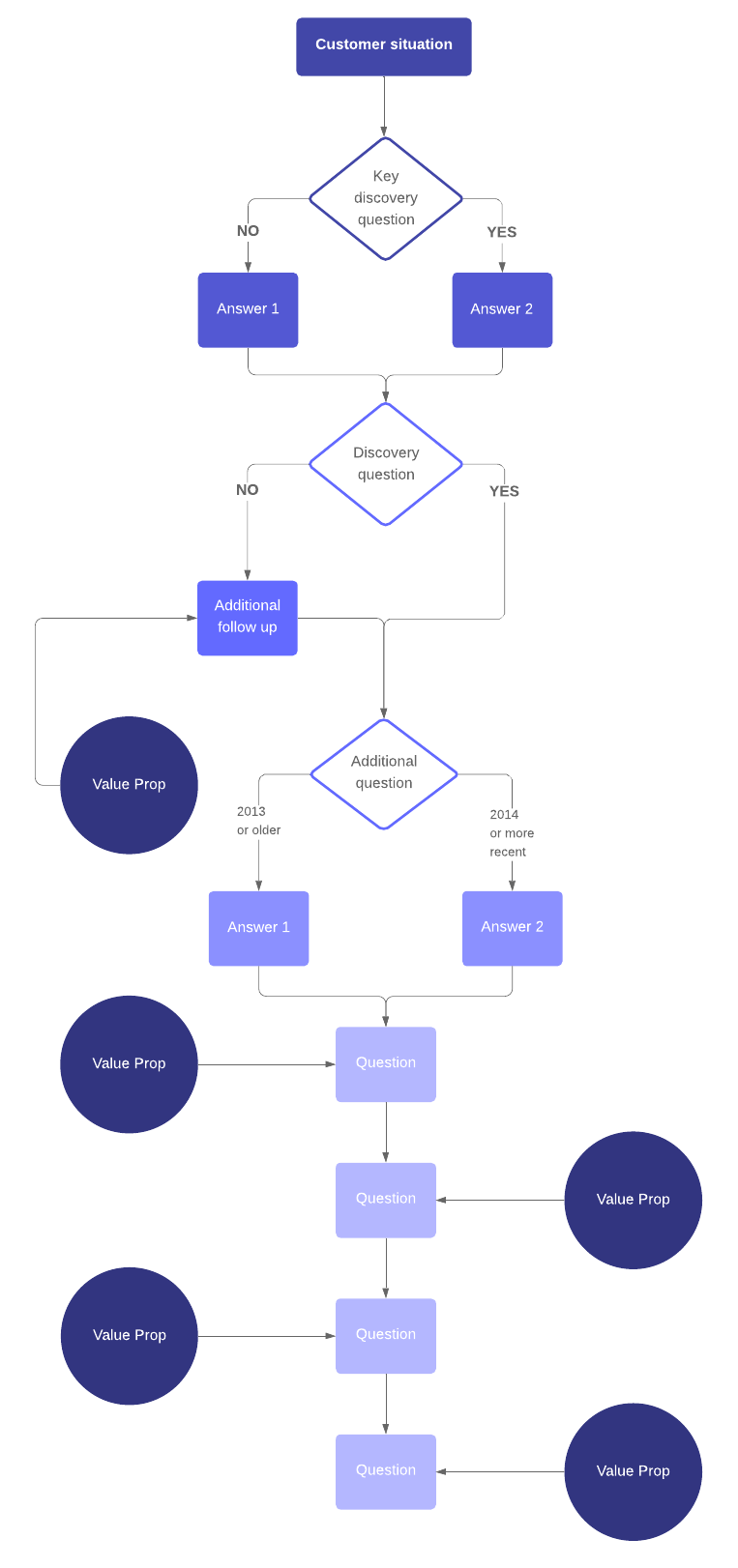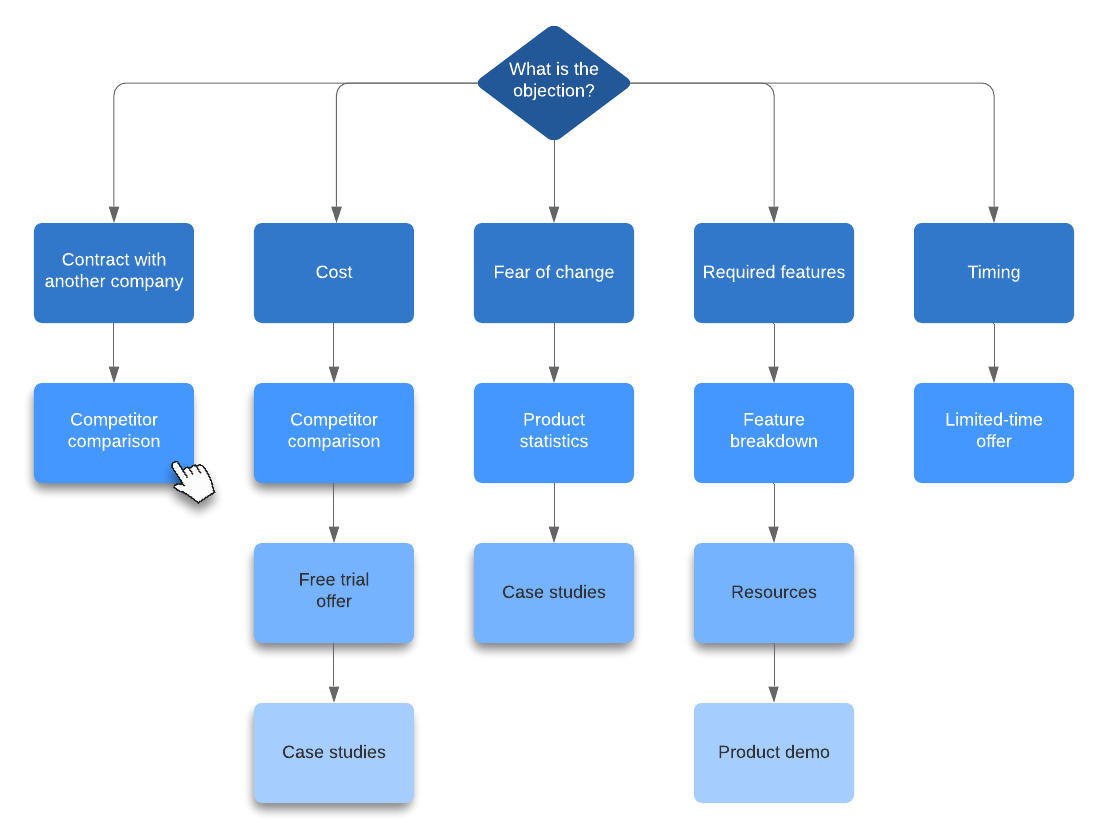“Success seems to be connected with action. Successful people keep moving. They make mistakes, but they don’t quit.”
—Conrad Hilton
Without question, sales is a challenging profession. Even high-performing business development teams are prone to the occasional slump or declining sales numbers.
During such times, organizations lean heavily on their sales leaders to reverse the momentum. It’s only natural—especially since most sales managers and executives assumed their roles based on their own sales prowess and outstanding performance.
Of course, simply possessing the skills and experience that make for a successful sales professional won’t always guarantee a smooth transition into an effective coach or mentor. It truly requires a concerted effort to give your team the benefit of your sales knowledge.
When it comes to imparting sales techniques, overcoming objections is a great place to start. Despite its impact, handling objections in sales ranks among the most underrated of the seven steps in the sales process. Yet, it’s knowing how to handle sales objections and address client concerns that really separates the good salespeople from the bad.
Developing the confidence, insight, and ability for handling sales objections is also what separates the great salespeople from the good. In this article, we will take an in-depth look into the five skills every team must possess to master handling sales objections.
Along the way, you will also have the opportunity to become a more valued and highly effective sales leader—able to identify, correct, or reinforce behaviors on your team.
Let’s begin.
1. Talking isn’t selling. Listen before you pitch.
Before your team can fully understand how to handle sales objections, it may be helpful for them to answer just one obvious question for themselves: What is a sales objection?
Behind every “no” a customer gives, every sales objection offers a hint of what barriers exist between the current situation and the conditions that must be satisfied before they will buy. By raising an objection, the customer is also indicating they’re still engaged.
This is when a salesperson should be listening to needs or issues being shared by their customers. Unfortunately, many salespeople believe talking about the product is selling.
According to legendary sales guru Bob Franco, this couldn’t be farther from the truth.
“When I would ride with some of my salespeople making sales calls, the first thing they would do, after introductions, is start ‘vomiting’ the features and benefits of the products we sold. Often, product is not what customers want to discuss.”
If your sales reps want to understand their customers, they have to pay closer attention.
This means being quiet more often in favor of active listening. Have them ask questions in the hope of learning what their customers want. Applied correctly, active listening can allow your team to close sales without having to go through their standard sales pitch.
Learn more about leading sales conversations with our blueprint from Winning by Design.

2. Always be responsive. Don’t make excuses.
Throughout a storied sales career that has spanned nearly 40 years, Franco noted that his sustained success came by following a simple maxim: Do what you say you will do.
For handling sales objections, this means responding to customers in a timely manner.
“It always amazes me that people don’t return phone calls in a timely manner,” he says. In his book, Sales: The Hardest Easiest Job in the World, Franco remembers trying to contact a salesperson who he had purchased millions from before. Sometimes, days would go by and Franco have to reach out again just to get the salesperson to call back.
“It’s not like I was calling to discuss the weather…I needed something.”
The excuses Franco has received over the years might sound familiar to those who’ve dealt with inexperienced or unrefined salespeople in the past. These excuses include:
- “I’ve been in meetings all week.”
- “Sorry, I’ve just been really busy.”
- “You know, I have a lot of customers.”
Excuses don’t alleviate the situation. When answering questions or handling objections in sales, always advise your salespeople to get back to their customers within 24 hours.
If there isn’t enough time for handling sales objections in a call, there are other effective ways to communicate with customers. Salespeople can leave a message, text, or send an email. When it comes to maintaining sales, the important thing is to make contact.
3. Keep sales conversations real. Use a script.
It may seem counterintuitive, but a well-crafted sales script can help your salespeople have more natural, meaningful, and effective conversations with prospective clients.
A script also provides new salespeople with an outline for conducting sales calls, as well as a great resource for learning how to handle sales objections unique (or inevitable) to the products or services offered by your organization. Most sales script basics include:
- Introduction
- Reason for the call
- Rebuttals to objections
- Closing techniques
Whether you manage five salespeople or a department of 100, you’ll need to find a way to produce and organize the various scripts necessary for sharing your sales techniques for overcoming objections. After you review our insights on how to craft a winning sales script, experiment with Lucidchart’s sales script template.

Not only does it offer a quick and intuitive way to create a sales script, but it also allows you to share those scripts with your entire team from an easily accessible online location. Within your sales script, you can also link to sales collateral that will help sales reps combat objections.
Remember, your salespeople don’t have to follow your sales scripts to the exact letter. The prospect’s questions or responses will ultimately guide the conversation. Sales scripts are simply meant to keep messaging more consistent across your organization.

4. Sales is a numbers game. Don’t fear rejection.
Whenever someone is tasked with selling something, inevitably there are a million reasons a customer might not buy it. When teaching your team how to handle sales objections, emphasize the importance of bravely facing every potential rejection.
Sales has always been a numbers game. Rejection just comes with the territory.
A salesperson cannot be effective until they accept rejection as part of the process. To help your sales team move beyond the fear of hearing “no,” introduce them to a practice regimen, which could involve individual role-playing or as part of a weekly group meeting.
An effective method for building camaraderie with your team as you demonstrate how to handle objections in sales is by including yourself in the practice sessions. Rely on your past experience to tackle the curveball objections devised by your salespeople. Make a point of jumping into practice sessions or having your team listen in on a sales call.
Getting involved and demonstrating firsthand how to handle sales objections helps you bond with your team. Plus, salespeople look to their leaders to model success for them.
A report published by Frontiers in Psychology suggests that when employees view their leaders as empowering and capable, in turn, they begin to work more proactively. This mindset may also manifest in other desirable behaviors—like seeking feedback on performance, showing greater organizational commitment, and taking charge for their improvement.
High-performers should also be included in your practice regimen and coaching efforts. After controlling for experience and tenure, a Performance Improvement Quarterly study revealed that a coached salesperson showed an average performance improvement between 2.9% and 6.2%. In a competitive environment, any gain can make a world of difference.
5. Nobody wins alone. Find greater success as a team.
In the end, the best sales teams are simply that—teams. No matter how talented your individual high performers may be, nobody succeeds entirely on their own. From the first cold call to handling sales objection to eventually closing the deal, most of us have received all kinds of support along our journey—help that we often take for granted.
On some level, every salesperson receives administrative or IT support, guidance from their peers, and upper management. Let’s also not overlook the support we get from our personal network of family and friends. No one is an island. Salespeople should not try to function as one.
When your team members are successful, remind them to acknowledge the contributions of others. As they develop confidence and experience, encourage them to share in their success. Showing others how to handle sales objections acts to reinforce organizational best practices and establish a firm foundation for greater teamwork and mutual respect.
All of which are the most desirable attributes of a dynamic sales team.

Handling objections is just a small part of the sales process. Learn how to improve every aspect of your buyer experience.
Read nowAbout Lucidchart
Lucidchart, a cloud-based intelligent diagramming application, is a core component of Lucid Software's Visual Collaboration Suite. This intuitive, cloud-based solution empowers teams to collaborate in real-time to build flowcharts, mockups, UML diagrams, customer journey maps, and more. Lucidchart propels teams forward to build the future faster. Lucid is proud to serve top businesses around the world, including customers such as Google, GE, and NBC Universal, and 99% of the Fortune 500. Lucid partners with industry leaders, including Google, Atlassian, and Microsoft. Since its founding, Lucid has received numerous awards for its products, business, and workplace culture. For more information, visit lucidchart.com.

